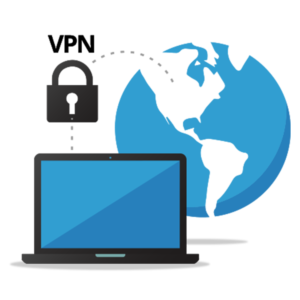Multiverse 2.357
paused to apply patches
VPNs are becoming so widely used, it’s worth taking a closer look at them. Previously in Intro to VPNs we talked about the basics including what a VPN is and what they’re used for by individuals and businesses. Let’s focus now on personal use of VPN providers in this post.
Never use a free VPN service! Running a VPN service requires buying, setting up and maintaining servers and software, paying the people who do that work, and paying for lots of bandwidth; i.e. high initial setup and ongoing operating costs. If the VPN provider is not charging you, they’re covering the costs in another way – perhaps by selling your profile data based on your Internet usage, or violating your privacy in other ways.
Rogue “free VPN” services in the past have been caught pulling all kinds of shenanigans, including dangerous things, like simply swapping IP addresses of people connecting to their service, so you’ll connect and simply get the IP address of another user. This could be dangerous if the other user is doing illegal things that now appear to come from your computer, so don’t go for the “bargain” free VPNs. Others pretend to provide VPN service for you and actually just route your traffic through a proxy.
Choosing a provider begins with deciding what your priorities are. For many, choosing a provider with fast servers located nearby is a top factor since you’ll be connecting to this every day. For others, having servers located in certain particular countries is a priority. Still others will care most about the technology used – type and minimum level of encryption used, support for Tor and so on.
If you consider VPN selection purely in terms of privacy, choose a foreign country that operates servers in your country. A foreign company may feel less pressure from your government to record all activity, while connecting to servers inside your country attracts less attention from a government as well as giving you the best performance.
Obviously this varies depending on the country in which you are in, and many oppressive governments have actually outlawed VPN use. If you are a journalist in a country with an authoritarian government, you should not rely on a VPN connection to keep you safe – consult an organization like the EFF to get advice on using more sophisticated techniques. For the rest of us, using a VPN will go a long way to protecting us from our Internet service providers, shielding us from a variety of attackers, and enabling us to use public Wi-fi networks safely for a small investment of time and effort.
But take care to go with a reputable provider. I consider thatoneprivacysite.net to be a reliable source of information about VPN providers. Note too that running your own VPN is a reaslistic choice for many people, despite the complexity in commercial solutions, and we’re going to discuss how to do that along with the pros and cons in a future post.
You should not just choose a provider based on a television commercial. If you look at some current data, they suggest a landscape where the entire lower tier of providers is suspect. One major study of Android VPN apps found that fully 82% request permissions to access sensitive resources including user accounts and text messages. That same study found that 38% of them contain some malware presence according to VirusTotal, and 18% of the VPN apps implement tunneling protocols without encryption.
In May of 2019 ther was a warning from DHS that foreign spies may pose a threat by way of your VPN provider, so take a look at thatoneprivacysite’s rankings and decide what your criteria are for choosing a reliable service, including locations offered and where the service is headquartered. Price is not the way to make a smart choice here, but do make a thoughtful choice to enjoy a higher level of security and privacy thanks to a trusted VPN provider!